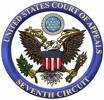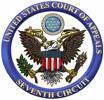Seventh Circuit Week in Review, Part II: Piling on the Mandatory Minimums
 In addition to the two cases covered in my prior post, the Seventh Circuit had four new sentencing opinions last week. Only one warrants any extended discussion. And that case, United States v. Easter (Nos. 07-2433, 2435, 3118, 3203, 3540 & 3628), actually presented several different issues raised by multiple defendants.
In addition to the two cases covered in my prior post, the Seventh Circuit had four new sentencing opinions last week. Only one warrants any extended discussion. And that case, United States v. Easter (Nos. 07-2433, 2435, 3118, 3203, 3540 & 3628), actually presented several different issues raised by multiple defendants.
In Easter, several codefendants appealed their sentences for various drug trafficking convictions. One, McKay, challenged the application of a mandatory minimum sentence to him based on the quantity of drugs involved in his offense. The ten-year minimum was applied to McKay because he and his coconspirators were responsible for at least 50 grams of crack or one kilogram of heroin (the actual basis was unclear). McKay’s appeal centered on the fact that, for purposes of calculating his sentence under the federal sentencing guidelines, the district court found him responsible for only 960 grams of heroin and 45-75 grams of crack. However, the Seventh Circuit (in a per curiam decision) noted that the guidelines do not hold defendants responsible for as much of the conduct of their coconspirators as do the mandatory minimum statutes. (For an earlier post on this topic, see here.) Considering the full set of drug sales foreseeably perpetrated by McKay’s coconspirators, the district court could permissibly reach the quantity thresholds for the ten-year prison sentence.


